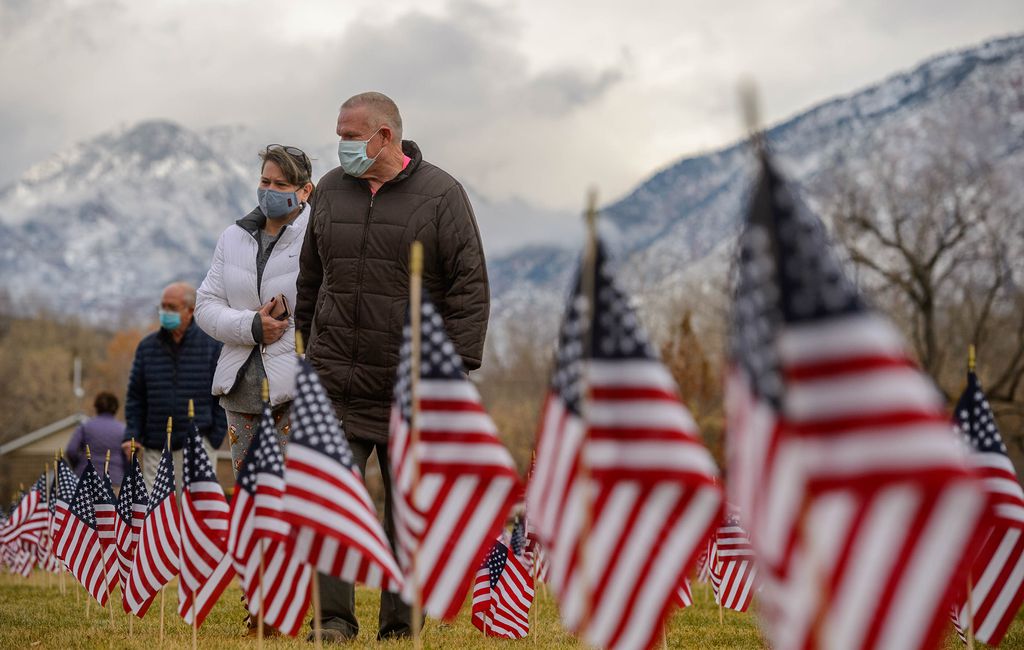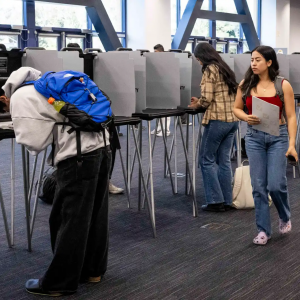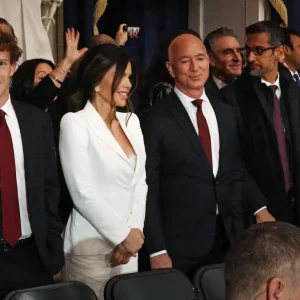The U.S. withdrawal from Afghanistan marks the end of a 20-year military presence that is now estimated to have cost $5.8 trillion. Today, the returning wave of U.S. veterans has left us with an additional cost to the war: the cost of veteran health and welfare and the failure of our American institutions to meet their needs. From adequate housing to mental health concerns and job employment, veterans have yet to receive substantial support from government facilities and resources. Despite political efforts to end wars in Afghanistan and bring our troops home, America’s government has had little success in preparing veterans for their return to the U.S. and adequately venerating them.
Since 1776, the American government has had a history of failing to adequately compensate and connect our country’s veterans. Following the Revolutionary War, only 3,000-250,000 soldiers drew a promised pension, a pattern which today translates to a startling veteran poverty rate of 6.7%, with over 29.9% of veterans recognized as having a diagnosed disability. Such startling statistics raise questions about our government’s priorities, and ability to combat issues such as veteran mental illness, homelessness and unemployment.
The recent passing of Veterans Day left the country time to consider the role veterans have in a society separated from active duty, and whether the U.S. government is doing enough to support their new endeavors. As Afghanistan comes to a close, how does America evaluate the cost these past 10 years of violence has had on our veterans?
To learn more about these inadequacies, I met with a retired Army National Guard officer, Charles Perry. Charles Perry was a Chief Warrant Officer 4 in the Army National Guard who served from 1986-2018, and was deployed in Kuwait. After 32 years in uniform, Perry has profound experience with veteran services, and shared his insight regarding our country’s current veteran welfare provisions during an interview with Berkeley Political Review.
Health Care
Modern failures of veteran healthcare can be seen in hospital system disorganization, long wait times, misdiagnoses and mental health stigmas that stem from a lack of funding for the Department of Veterans Affairs (VA). The VA is a Cabinet-level executive branch department focused entirely on providing veterans with healthcare. Despite this singular goal, the VA’s healthcare options still do not cover veteran families as well as registered veterans, and maintain selective coverage options that often do not include treatment for cancer, mental illness, or subsequent disabilities.
Having been in service from 1986-2018, Charles Perry used the primary healthcare of the VA exclusively for 8 years. When asked about his experience with the organization, Perry responded that veterans seeking care from the VA often encounter “long wait times, selective coverage, and inadequate resources” that make it difficult to receive reliable, comprehensive coverage. Today, several solutions have been proposed to amend the failures of the VA, including a proposition to privatize veteran healthcare. In 2016, President Donald Trump claimed reforming veteran healthcare was one of his primary campaign goals. As stated by New York Times writer Jennifer Steinhauer, after Trump’s ascension to office, these efforts involved “shift(ing) billions of dollars from government-run veterans’ hospitals to private health care providers.” Such a privatization stands to redirect precious money and resources outside of the management of the VA, and into the private sphere, a shift that could result in a lack of specialization of care, and “would starve the 153-year-old veterans’ health care system, causing many hospitals to close.”
In his interview with BPR, Perry emphasized this point stating “I don’t think privatizing it is the answer. They need more resources. So many of those people are wearing several hats, staying late, working through lunch, coming in on a day off to go above and beyond the call of duty. They wanted to make sure that the Vets got taken care of. That level of devotion is rare.”
Several veterans groups agree with Perry’s sentiment, as they continue to push for increased funding and resource allocation toward the VA, a transition that could allow an expansion of coverage and resources that remains stalled in Congress today. Bills like the SB3163 — aimed at improving access to medical examinations — and SB2817 focused on increasing readjustment mental health counseling for veteran families aims to do just that, demonstrating public solutions that can address and improve the qualities of veteran care. Recent independent assessments of the VA19—done by the likes of Grant Thornton and McKinsey & Company— have found that, “when compared with the private sector, VA health care in nearly every case is better and more effective.” The recent push to privatize VA health care posses a threat to equitable coverage of veterans and their families. Instead, activists must advocate for reform inside the government’s jurisdiction and continue to pressure our representatives to seek the same.
Mental Health
The challenges surrounding veteran health and well-being are compounded by the additional devastating effects deployment has on veteran mental health. When asked about the connections between mental health and deployment overseas, veteran Charles Perry affirmed that “[deployment] changes people. I know a lot of people that suffer from PTSD. Even though I never took incoming fire, the kind of hyper vigilance the training grinds into you and being on foreign soil, that can lead to small signs of PTSD that even I would experience. ”
Today, several polarizing narratives have caused us to distort the legacy of our veteran population. A lack of awareness, sympathy and understanding for veteran sacrifice and experience has caused a degree of separation to form between our veteran population and the rest of the country that the VA has consistently failed to mitigate. In Harvard Law School’s Clinical and Pro Bono programs blog, Clinical Professor and Director of the Community Lawyering Clinics Dan Naggin shared how “one of the VA’s current struggles is that [it evaluates benefit] claims based on a [legally enshrined] WWI-era conception of disability, [which] has trouble processing modern understandings of mental health issues or other complex medical problems.”
The veteran population of today also faces major issues in being placed into civilian life after returning from war. According to Pew Research’s data, roughly one-in-four (26%) of veterans say readjusting to civilian life was difficult, with a third of all veterans saying it was hard to pay the bills after returning home from combat. Furthermore, of these responding veterans, (28%) say they received unemployment compensation and one-in-five say they struggled with alcohol or substance abuse.
Since President Biden’s removal of troops in August, it has been clear that veteran’s mental health has been profoundly impacted by the unique circumstances surrounding the US occupation of Afghanistan. For decades soldiers were told they were a part of a noble cause, a worthwhile pursuit to end the threats of terrorism. In Perry’s words, “To see the Taliban regain control of these lands is undoubtedly a bitter pill to swallow.” When asked about the specific impact of Afghanistan, Perry replied: “It’s gonna be tough on a lot of people who really poured their hearts while they were over there who now feel like it’s for nothing. You can also say we gave [Afghanistan] 20 years where some of them could [have received] a worthwhile education, but it still feels like clutching at straws.”
Veteran Homelessness
Unfortunately, today’s veteran population clutches at similar straws, as veterans now make up a significant portion of the United States’ homeless population, seeing as far too many veterans are homeless in America. Even in 2020, “on a single night 37,252 veterans were experiencing homelessness — an increase of 167 veterans, or 0.4%, from January 2019, according to the Annual Homelessness Assessment Report
For decades, the VA has failed to get veteran housing built or to adequately respond to veteran crises on the West Coast and beyond, demonstrating another major roadblock for veterans returning home from war. According to the National End Homelessness organization, “between 130,000 and 200,000 [veterans] on any given night [are homeless] representing between one fourth and one fifth of all homeless people.” The infamous “Veterans Row” in LA is a physical representation of the VA’s institutional failure. Only blocks away from the VA’s office in LA, Veteran’s Row displays this exact demographic, showing how despite the land the VA has purchased and procured, they still remain unable to house a significant portion of the homeless veteran population, many of which remain plagued by medical illness and drug addiction.
In response to the fact that so many of our nation’s heroes now live on the street, Perry asserted that “Veteran homelessness is almost like a stain on our national consciousness. When there are so many homes standing open and so many people are under housed. It’s unconscionable. There are ways of taking care of it but it all costs money. The question is do we have the will to spend money to take care of the veterans?”
The lack of housing support for our country’s veterans has been fueled by developers’ interests, demonstrating the corrosive effects capitalism has had on our country’s priorities and political integrity. Lobbyist organizations such as Crossroads Associates LLC (a subsidiary of Harridge Development Group) have dominated and directed the attention of LA developments, failing to fix the issues found on Veterans Row and beyond. Today, Business Improvement Districts are one of the driving factors of criminalizing homelessness in Los Angeles, and have provided additional problems rather than answers.
Hollow promises from California’s own former Senator, and now Vice President, Kamala Harris as well as Representative Ted Lieu to fix these areas and house these veterans have fallen flat, and their “commitment” has lost its charm. While developers profit and politicians promise, veterans eventually come home to the potential poverty, uninsured injuries, PTSD, and a lack of resources.
For claiming to care so much about the vitality of the flag and service members, the incredibly partisan U.S. government has not shown much interest in funding efforts to support them. If the federal government continues to send out forces to wars we don’t need to be involved in, we must ensure that soldiers are taken care of them when they get back. As Bernie Sanders puts it, “taking care of our veterans is a cost of war. If you can spend six trillion dollars sending people to war, you can spend a few billion dollars taking care of them when they come home.”
These government inadequacies to address the needs of our veterans results in intense emotional impact on veterans and veteran families. In response to the lack of governmental focus and support surrounding the rights of veterans, Charles Perry shared that “As someone who spent most of my adult life wearing the uniform, it is heartbreaking to feel like my country has broken faith with me. It feels like a betrayal. When a person develops cancer as a result of being in close contact with an Army burn pit and it’s not covered by your VA medical insurance, that’s a betrayal. When they’ve prepared to lay down their life for you, develop mental health issues, and are told you are not going to get taken care of, it feels like a betrayal. There are a lot of veterans that feel that way.”
More must be done to spread awareness and respect for those who have served in the Armed Forces. Americans get a free day off school and work in honor of their day of recognition. Hollywood produces a new blockbuster on war and service members every single year. But truly, the nation can do more. Activists can spread awareness and put pressure on our officials to make substantive legislation. People can pursue empathy, compassion, and sympathy in an attempt to support our troops who have sacrificed so much. In the words of Charles Perry “It’s really easy for people to plant a mini American flag in their yard or make posts on Facebook, but at the end of day we need people to understand that we’ve made a sacrifice and that they need to make a sacrifice of something similar.”
This work should and can be done through public action, rather than private donors. Veteran advocates must work at the federal, state and local level to accomplish needed reforms. Our work of ending wars does not end until every veteran is accounted for and given basic housing, food security and healthcare to end the cycles of suffering that our wars have cost.
Featured Image Source: The Salt Lake Tribune






Comments are closed.